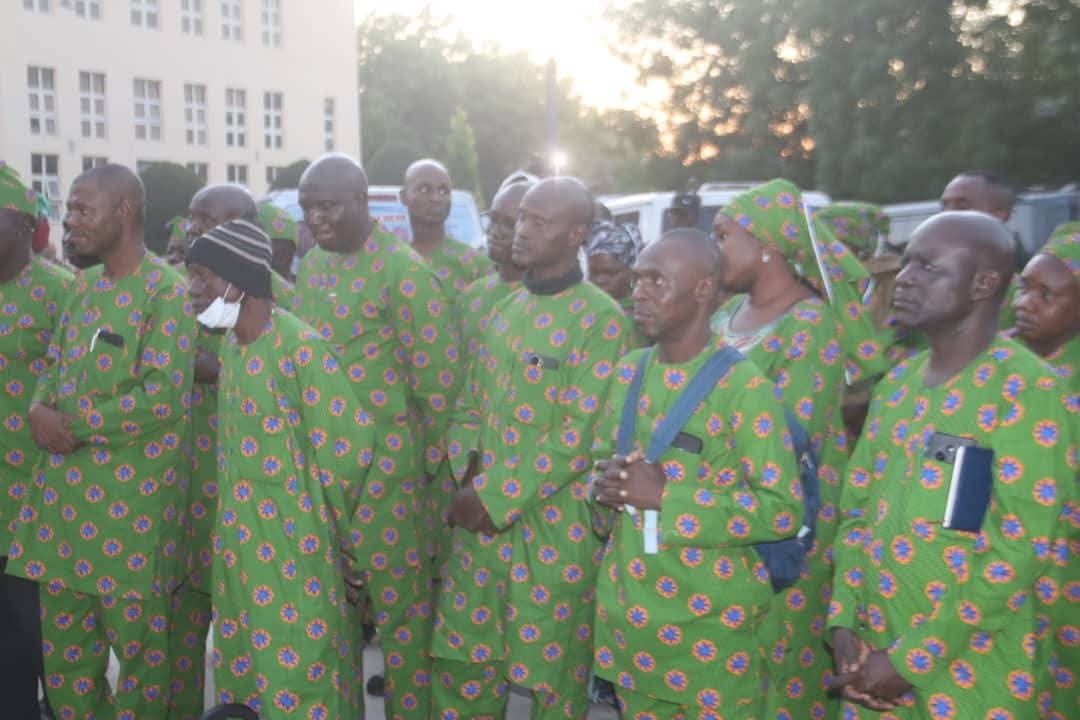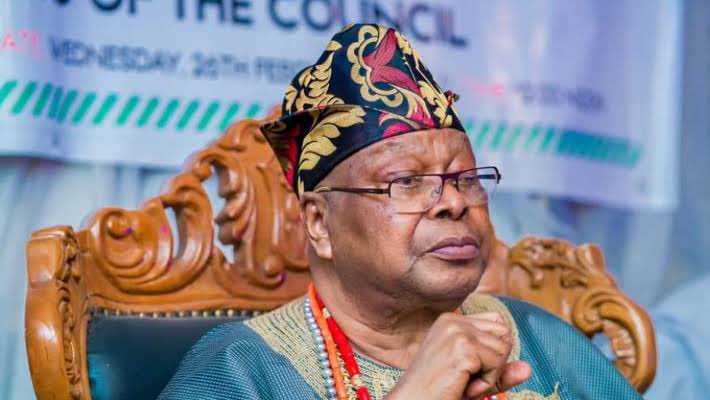Thousands of Nigeria’s best and brightest minds, who excel in the competitive Unified Tertiary Matriculation Examination (UTME), are discovering that top marks do not guarantee admission to their dream universities. In this piece, IYABO LAWAL examines the systemic bottlenecks, policies, and hidden barriers behind the anomaly, raising concerns about wasted potential and a looming brain drain.
In Nigeria, the Unified Tertiary Matriculation Examination (UTME) remains a rite of passage with immense social and economic importance. The stakes are sky-high: access to university is synonymous with opportunity, mobility, and success in a country where the youth population is among the largest in the world.
But for thousands of Nigeria’s academically talented students, scoring high in the UTME is no guarantee of securing a place in their preferred universities, or, in many harrowing cases, any university at all.
It is a crisis that is as complex as it is painful, defying the logic that the best performers should enjoy the greatest access to educational advancement.
Every year, hundreds of thousands of Nigerian students write the UTME, hoping to secure admission into universities, polytechnics, and colleges of education.
Among them are exceptional candidates, teenagers who score 300 and above out of 400, a feat that places them in the top one per cent of examinees. Yet, many of these high-flyers never gain admission into their preferred institutions.
It is sobering when Prof. Ishaq Oloyede, the Registrar of the Joint Admissions and Matriculation Board (JAMB), indicated that scoring high in UTME does not guarantee a university seat.
Oloyede has repeatedly reiterated this fact. The magnitude of the competition is staggering. In the 2025 UTME, JAMB registered nearly
1.96 million candidates. Among these, only 12,414 candidates, around 0.63 per cent, scored 300 and above out of a possible 400, placing them in the highest academic echelon.
Still, a remarkable 420,415 candidates scored above 200, a cut-off that, in past decades, would have been sufficient for university admission. But available spaces remain acutely limited.
According to the most recent data, all of Nigeria’s 274 universities (comprising federal, state, and private institutions) have a combined capacity of about 700,000 new students per academic year.
The grim calculation is that only about one in every three applicants, sometimes fewer, can hope to secure a university seat after the admissions process.
This yawning gap persists despite the rapid expansion of universities over the last decade, with several new public and private institutions being established each year.
For students who emerge as high scorers, the reality is especially galling. According to figures released by JAMB for the 2023/2024 academic year, over 40 per cent of candidates who scored 300 or higher in the UTME failed to gain admission into their chosen courses or universities.
In more concrete terms: out of approximately 13,000 top scorers nationwide, over 5,000 ended the admissions cycle without an offer, often after repeated attempts and harrowing rounds of post-UTME scrutiny.
It is easy to assume that a high UTME mark confers automatic entry to Nigeria’s top universities, especially in a country that venerates academic achievements, but a tangled web of policies and practicalities shapes the admission process.
The most fundamental issue is a mismatch between aspirations and infrastructure. Nigeria’s university population has grown at a dizzying pace, but investment in capacity has not kept up.
While the country’s population is estimated to be over 220 million, with 40 per cent of the population under 15, according to the National Population Commission (NPC), university infrastructure remains overstretched and underfunded.
According to the National Universities Commission (NUC), in the 2018/2019 session, only 512,000 candidates were admitted against 1.7 million applications.
In subsequent years, the number of applicants has continued to grow, while expansion in staff, buildings, and faculty has lagged. Many premier federal universities, such as the University of Lagos (UNILAG) or Ahmadu Bello University (ABU), remain heavily oversubscribed, with competitive courses like medicine, law, and engineering receiving as many as 15 qualified applicants for every available place.
Another layer of complexity is the nation’s quota-based admissions policy, designed to ensure regional and social inclusion in educational access. The policy allocates university slots roughly as follows: 45 per cent based on pure merit (national competition), 35 per cent reserved for candidates from the institution’s catchment area (nearby states), and 20 per cent assigned to candidates from the so-called Educationally Less Developed States (ELDS), many of which are located in the North.
In addition, each university often maintains its version of “discretionary” or “internal” admissions, including slots for staff children or special candidates.
This system, while well-intentioned, has real consequences for high scorers. If the merit slots for a course are filled, a candidate from an “advantaged” state may lose out to a lower-scoring peer from a disadvantaged state or the university’s catchment, even when their credentials are superior.
As the deceased Niger Delta activist, Kenule Saro-Wiwa, once noted, equality and federal character are noble aims, but they must not become a ceiling on merit and ambition.
In a 2021 analysis, JAMB revealed that over 25 per cent of admissions into medicine and related fields went to ELDS and catchment candidates with lower cut-off marks than the national average.
This enduring trend has sparked debates on whether the system prioritises equity at the expense of excellence. Besides system rules, many candidates falter on technicalities. The most common pitfalls involve subject combinations. The requirements for each course are rigid: a candidate aspiring to study pharmacy, for instance, must have the right mix of O-Level science subjects, including chemistry, physics, and biology, and must pass them at credit levels. A missing subject, even by accident, is a deal-breaker.
Since 2005, universities have been empowered to conduct further post-UTME (screening) examinations and interviews, ostensibly to ensure only the most capable candidates proceed.
However, the process is neither uniform nor always transparent. For example, in 2023, the University of Nigeria, Nsukka, required post-UTME scores to account for 30-50 per cent of the final aggregate.
This means that a student who excelled in the UTME but scored lower in the post-UTME could lose out to a peer with more modest UTME performance but excellent post-UTME scores.
Coupled with fluctuating cut-off marks that vary annually by course and institution, the system creates layers of uncertainty. In a recent survey by the Education Reform and Innovation Team, nearly 60 per cent of high-UTME achievers reported not being fully informed about the weight of post-UTME scores or the precise aggregate formulas, leaving their chances at the mercy of shifting institutional protocols.
Since 2017, the JAMB’s Central Admission Processing System (CAPS) has automated many steps of the admission process, aiming to reduce corruption and errors.
But the portal has not been problem-free. Delays in updates, system glitches during heavy traffic, and the sometimes-opaque process of “accepting” an offer on the portal have led to many candidates accidentally losing out on admitted spots. For others, a lack of access to dependable Internet, especially in rural areas, introduces yet another unfair advantage for urban candidates.
The 2022 JAMB report found that “at least 4,000 otherwise admitted candidates failed to accept their offers on time on CAPS, resulting in automatic withdrawal of admission.”
In a country where digital literacy and infrastructure remain uneven, technical challenges persist. The statistics are sobering, but the personal stories are heartbreaking. Take the case of 17-year-old Grace Ekanem from Rivers State. Grace scored a remarkable 327 in the UTME, placing her among the top 0.1 per cent nationwide.
Yet, after an unsuccessful post-UTME, which she attributes to illness and scheduling confusion, her aggregate slipped below the threshold for Medicine at her first and second-choice universities.
Months later, she found herself seeking admission into a private university, at a tuition four times what her family could afford. Or consider the experience of Ahmed Sule, in Kano State, who scored 311 in his first attempt and 299 in his second. Despite his performance, he settled for a polytechnic programme after being rejected by universities multiple times, due to the outcome of catchment area quotas and a single missing O-Level credit in biology. Sule said, “I did what everyone said I should do- study hard, get the best marks. But still, it wasn’t enough.”
These cases are not rare. According to a report by the Socio-Economic Rights and Accountability Project (SERAP), in the last five years, almost 30 per cent of candidates who scored over 280 in the UTME failed to secure admission into Nigerian universities, let alone their first-choice course.
Many end up “recycling” through repeated applications, taking remedial programmes, or, if resources allow, seeking education overseas. Some of these problems have persisted partly due to the chronic underfunding of the university system.
As specified by UNESCO’s recommendation, countries should allocate at least 15–20 per cent of their annual budgets to education. In Nigeria, BudgIT, an outfit that uses an array of tech tools to simplify government budgets and matters of public spending, pointed out that the 2023 federal budget allocated only about 7.9 per cent to the education sector, with the university sub-sector receiving an even smaller slice.
This financial shortfall translates directly into an insufficient minimum wage for academic staff, dilapidated lecture halls, under-equipped laboratories, and inadequate facility expansion.
Additionally, leadership turnover and policy discontinuity, as well as frequent changes in admission rules, administrative heads, and university autonomy policies, breed confusion and unpredictability.
Nigeria’s education sector has also suffered from industrial disputes; the Academic Staff Union of Universities (ASUU) alone has staged over 15 major strikes in the past two decades, disrupting academic calendars and complicating the admission process for many aspirants. Few issues in Nigerian education inflame passions more than the debate over quota versus merit.
Proponents argue that in a country where historical inequalities have left the northern and some rural states at a disadvantage, special policies are essential to prevent regional exclusion. Critics counter that the system is no longer serving its original purpose and now penalises true excellence, driving talent away.
The debate has even drawn international attention, with The Economist and the World Bank observing that while quota policies boost short-term representation, they can become self-defeating if they consistently block high-achieving students from reaching their full potential in fields like science and medicine, which are critical for national development.Per the way forward, observers agree that while there are no easy fixes, a comprehensive reform is overdue.
Education consultant, Adefemi Adenuga, said investment in tertiary education must dramatically increase, stressing that both the public and private sectors have roles to play in constructing new institutions, upgrading facilities, and recruiting more qualified faculty.
According to him, expanding capacity is not just a matter of numbers; it is a matter of national survival, as Nigeria seeks to harness its “demographic dividend” in the face of youth unemployment and global competition for skilled labour.
Besides, he pointed out that the quota system needs a critical review. He stated that some experts have proposed reducing catchment and ELDS quotas for highly competitive programmes, phased over time, paired with pre-university bridging programmes and scholarships for those from underserved regions, striking a new balance between inclusion and merit.
Similarly, a retired school principal, Dr Akin Oladimeji, said that JAMB and universities must ensure full transparency in the computation of aggregates, post-UTME weighting, and course placement. Open publication of scoring formulas and historic admission thresholds, he said, would empower candidates to make choices based on realistic odds, not rumours or hope.
Oladimeji also advocated greater investment in digital infrastructure and outreach, adding that every candidate should have access to reliable information about subject requirements, acceptance procedures, and timelines, regardless of location.
“Sensitisation campaigns and school-based counselling could forestall many of the technical missteps that now prove consequential. A lecturer at Federal University Oye Ekiti, Dr Joseph Ewuoso, said that there is growing support for the establishment or strengthening of open universities and distance-learning centres (such as the National Open University of Nigeria) as a means of absorbing more qualified candidates, especially those who can learn independently or who are excluded from traditional programmes due to economic pressure.






